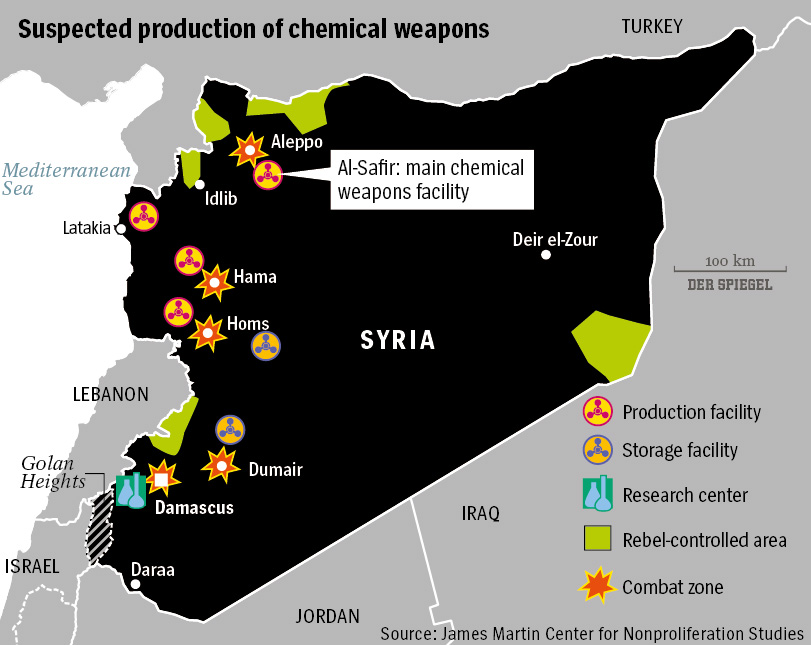
From Jamie M. Fly, Wall Street Journal: Given that the use of chemical weapons in Syria would likely result in outside intervention, which Assad clearly wishes to avoid, a greater threat might be what happens to his chemical arsenal once his regime collapses and the stockpiles go unprotected.
This could result in chemical weapons or related materiel falling into the hands of a terrorist group that could use them elsewhere in the region. Casualties are unlikely to be on the scale of Halabja or World War I, but such an attack would cause panic among Western publics.
When the regime of Libyan dictator Moammar Gadhafi fell in 2011, its small declared chemical-weapons stockpile (undergoing destruction at one site) was quickly secured, as were several other small caches that Gadhafi had failed to declare. But thousands of conventional weapons proliferated because of American and European unwillingness to back an external stabilization force.
The Obama administration, failing to learn the lessons of Libya, is reportedly planning for a light-footprint approach in Syria should the Assad regime fall. Options include relying on small teams of Special Operations Forces, thousands of Jordanian soldiers, or contractor-trained rebel forces to secure the chemical-weapons sites.
Large-scale transportation of Syria’s stockpile will be difficult and on-site destruction (as the delayed destruction programs of the U.S., Russia and Libya attest) will take time, likely years. Relying on a ragtag, outsourced force for security over a long period of time would be the height of wishful thinking.
If Mr. Obama is serious about ensuring that terrorists don’t get their hands on weapons that could be used against American interests or personnel in the region or even on the U.S. homeland, the only solution is early and sustained planning to stabilize a post-Assad Syria.
Mr. Fly is executive director of the Foreign Policy Initiative. (graphic: Spiegel)
Image: spiegel%201%203%2013%20Syria%20chem.jpg
